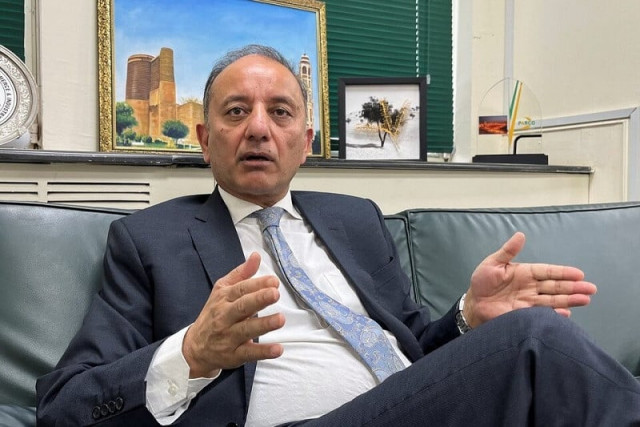At COP30, Dr Musadik Malik calls on the developed world to support preservation efforts
Federal Oil Minister Musadik Masood Malik speaks to Reuters during an interview in Islamabad, June 11, 2024. PHOTO: REUTERS
ISLAMABAD:
Pakistan has urged the international community to act quickly to protect the rapidly deteriorating cryosphere, warning that accelerated melting of glaciers in the Hindu Kush-Karakoram-Himalaya (HKH) region is putting millions of people at increasing risk.
In a virtual speech delivered during a high-level dialogue at COP30 in Belem, Brazil, Pakistan’s Climate Minister, Senator Dr Musadik Malik, said the world is witnessing “unprecedented” changes in glacial systems, permafrost zones and snow-covered regions.
He warned that these changes are already disrupting water supplies, food production and the safety of mountain communities.
The discussion, organized by Pakistan’s Ministry of Climate Change and Environmental Coordination in partnership with international organizations, was attended by officials, scientists and specialists from Nepal, Bhutan, Turkey, Azerbaijan, ICIMOD, UNDP, UNESCO and the Asian Development Bank.
Dr Malik said the HKH – often called the planet’s ‘third pole’ – is warming almost twice as fast as the global average, threatening the largest supply of fresh water outside the polar regions.
Pakistan, home to around 13,000 glaciers, is already facing rapid retreat, expanding glacial lakes and a sharp increase in glacial lake flooding.
He said these changes are beginning to alter the natural flow of the Indus River, damaging infrastructure, weakening agricultural land and increasing water insecurity downstream. For mountain communities, he said, climate change has become “a daily crisis.”
Dr Malik said climate-driven melting of glaciers was happening at an unprecedented rate, leading to increasing risks such as flooding from glacial lakes. He also highlighted global inequities in climate finance, saying a handful of large emitters contribute the most to global carbon pollution while also receiving the bulk of green financing.
He urged countries with historical responsibility for emissions to support adaptation efforts in vulnerable mountain regions and called for the cryosphere agenda to be raised at COP30.
Scientific assessments presented at the event indicated that up to 65% of HKH glaciers could disappear by the end of the century under high emissions scenarios.
Experts present at the dialogue noted that Pakistan’s northern regions are already facing frequent GLOF events, which have destroyed houses, schools, roads and croplands in Gilgit-Baltistan and Khyber Pakhtunkhwa.
Irregular river flows, they added, also weaken agricultural production, disrupt hydropower generation and strain water supplies in major cities, while changing ecosystems and local economies throughout the Indus Basin.
With the contribution of the APP




